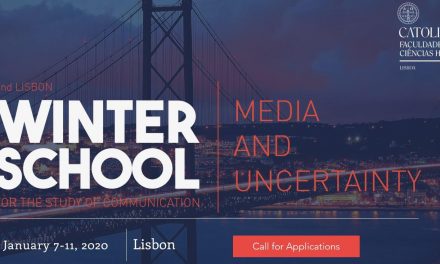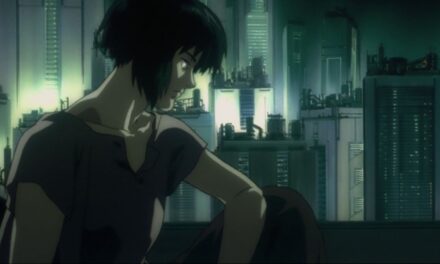After Invincible’s fifteen-year run as a comics series (Image Comics/Skybound, 2003-18), creator Robert Kirkman and TV writer Simon Racioppa pitched an adaptation to Amazon Prime Video. Their ongoing animated superhero drama series, which has run for three seasons so far (2021, 2023-25), is an undeniable success. Rotten Tomatoes rates the seasons at or near 100% approval. With a fourth season in development and a live-action film still in production, now is an opportune moment to turn scholarly attention to this popular transmedia franchise.
With nearly 50 recurring characters driving it, the Invincible Universe showcases diverse sets of friendships, relationships, and allegiances, and as the superhero genre requires, we find frequent betrayals, deaths, and resurrections. In this edited collection, scholars will analyze these characters using theoretical tools from a breadth of academic disciplines.
As one example, Mark Grayson (aka Invincible) navigates social constructions of masculinity and race, the changing nature of his work and labour (from minimum wage work to government-sponsored superhero to vigilante), his conflicting roles as friend and boyfriend, and familial commitments to his supportive mother, half-brother, and estranged father. Each new development in Mark’s adolescence marks a shift in his identity and understanding of his masculinity. In a climactic battle with Omni-Man at the end of Season 1, Mark must decide between complicit masculinity and joining his father in the takeover of Earth, or protest masculinity and fighting back against undefeatable foes. In this episode, then, one can analyze depictions of hegemonic masculinity, father-son relations, gendered hierarchies, great power and even greater violence, species hierarchies, the superhero genre, memes (“Think, Mark” received meme treatment), and empires, among other topics.
Alongside Omni-Man’s call to “Think, Mark,” this edited collection seeks to think critically about Mark and the other heroes and villains in the Invincible Universe.
Given the breadth of possible approaches to the Invincible transmedia franchise, scholars from the arts, humanities, and social sciences are welcome to contribute chapters. While the collection hopes to prominently feature analyses of the animated series, chapters may branch out into the franchise, including explorations of the Image Comics/Skybound title, its spinoffs, and the Invincible digital and board games. Chapters may also investigate fan-produced content such as fan art, memes, and fan fiction. Productive comparisons to other superhero comics and media are encouraged.
Possible topics and characters include:
- Gender and Adolescence (Mark Grayson/Invincible; Oliver Grayson II/Kid Omni-Man; Samantha Eve Wilkins/Atom Eve; Amanda/Monster Girl; Rudy/Rex Connors/Robot)
- Sexuality, Friendships (Mark and Eve; Mark and Amber Bennett; Mark and William Clockwell; Amanda and Rudy; Rex Sloan/Rex Splode and Rachel/Shrinking Rae)
- LGBTQ+ Characters and Relationships (William and Rick Sheridan; Tether Tyrant and Magmaniac; War Woman and Connie/War Woman II)
- Changes in Representation, Gender-Swapped Characters (Eve; Shrinking Ray and Rae)
- Angry White Fathers (Nolan Grayson/Omni-Man; Adam Wilkins)
- Posthumanism (Eve; Rae; The Immortal; Katherine Cha/Dupli-Kate; Amanda; Donald Ferguson; Machine Head, etc.)
- Toxic to Inclusive Masculinity (Rex S.; Nolan)
- Power, Nationalism, Empire (Nolan; Viltrumites; Cecil Stedman; Allen the Alien)
- Motherhood, Household Labour (Debbie Grayson)
- Super Labour (Mark; Cecil)
- Ageing (The Immortal; Amanda)
- Representations of Race
- Epistemology and Superhero Worlds (e.g., multiverses)
- Science Fiction, Melodrama, and Splatter Genres
- Superhero Parody and Pastiche
- Philosophical Approaches to Embodiment
- Affect, Emotion
- Ethics and War, Revenge, and Violence (Angstrom Levy)
- Eco-Feminism (Eve)
- Fandom, Memes, Fanart, Shipping (Nomaskible/Unmasked Invincible and William)
- Critic, Fan, and Anti-Fan Discourse
In addition to chapters focusing on particular perspectives and characters, scholars wishing to provide an overview of the series, such as its development, adaptation, or significance for the superhero genre or blockbuster TV, may submit proposals for an opening section introducing key themes or debates relevant to the Invincible transmedia franchise. Ultimately, the chapters will shape the organization and structure of the edited collection.
Chapters will be 5000-6000 words, cited in Chicago Author-Date style. A publisher has expressed interest in a book proposal.
Please submit proposals of 500-600 words as a .doc. Include a brief biographical statement that lists publications or details research-in-progress (e.g., dissertation). Please email proposals to troy.bordun@unbc.ca by Aug. 1, 2025. Questions and inquiries can be emailed to this same address. Acceptance notices will be sent out by August 15, 2025. Proposals after the deadline may be considered. Chapter submissions are due December 15, 2025.
Troy Michael Bordun, Assistant Professor, English, University of Northern British Columbia.
Troy Michael Bordun’s publications in film studies include Genre Trouble and Extreme Cinema: Film Theory at the Fringes of Contemporary Art Cinema (2017), articles in Studies in European Cinema, among others, and a chapter in Screening Scarlett Johansson: Gender, Genre, Stardom (2020). He has also published articles in the fields of sf cinema, porn studies, and comics studies. In 2022 and 2023, he received grants to study superhero comics and philosophy. A book on this topic is currently under review. He is Co-Chair of the Comics Studies SIG, Society for Cinema and Media Studies.





